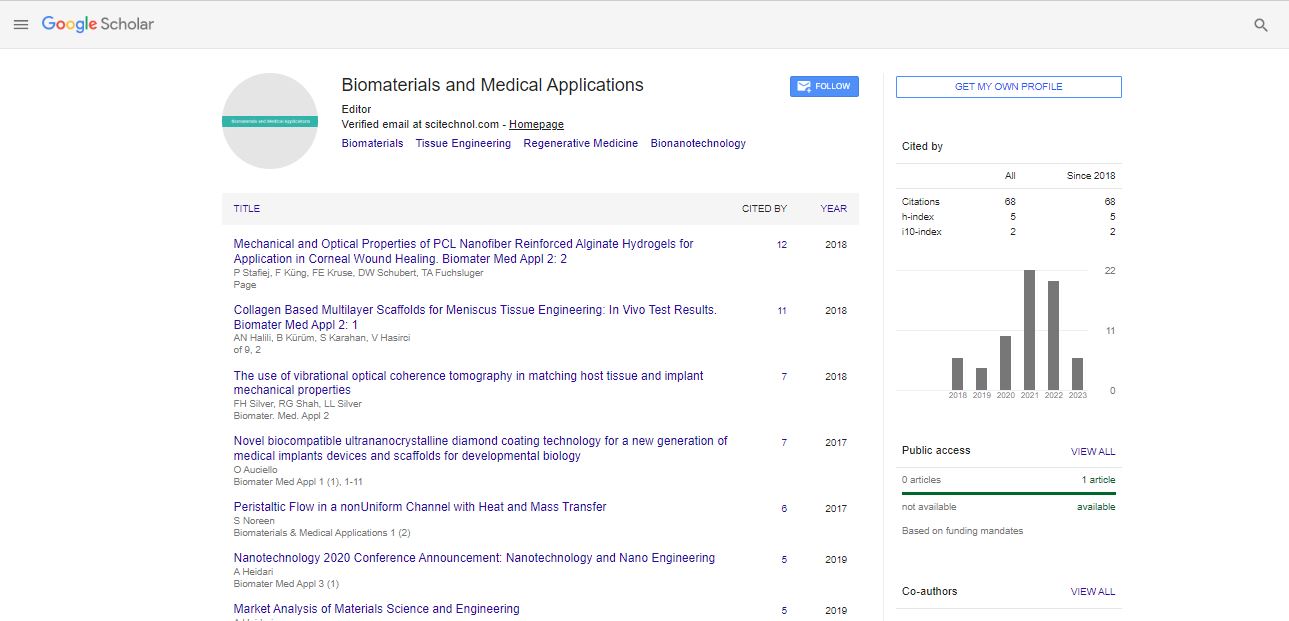Routine checking for cells viability in deposition 3D printing
C Devillard, E J Courtial, E Petiot and C Marquette
Claude Bernard University Lyon 1, France
: Biomater Med Appl
Abstract
3D Bioprinting, i.e. biomaterials 3D (Three-Dimensional) printing including living cells, is one of the most advanced technologies in tissue engineering and regenerative medicine. The technique presents the capacity to produce efficiently and in a cost-effective way, tissues with cell density and shape recapitulating human tissue behaviors. Nevertheless, the use of extrusion-based technology presents limitations such as low resolution and cells mortality, due to a high shear stress value inside the nozzle. We are herein proposing the development and validation of a new routine enabling the monitoring of cells viability during 3D bioprinting. The method is based on the relation between bio-ink rheological properties, shear stress induced by the bioprinting process and cells viability. Rotational rheometer was used to define the bio-ink rheological behavior. To access the shear stress map inside the bioprinting nozzle, a specific algorithm was developed based on Poiseuille tube flow of a pseudoplastic power law fluid. Fibroblast primary cells, already applied in-house for skin tissue bioprinting, were chosen as a model cell line for our study. Living and labeled necrotic cells were counted before and post-printing process to evaluated cell viability and total cell recovery in various conditions. In view of preliminary results, the shear stress gradient can be controlled through bio-ink rheological behavior and nozzle geometry. Moreover, memory effect of the flow, controlled by the nozzle shape, seems to have an impact on cell viability. In any case, it was shown that using adequate bio-ink rheological properties, cells viability can be optimal whatever the nozzle geometry and the applied flow value, protecting cells during the 3D bioprinting process.
Biography
C Devillard has completed her Master’s degree in Biochemistry and Molecular Biology from University Claude Bernard Lyon. She has her Internship in Master of Research in the Innovative Technology Platform, 3d.FAB, where she is specialized in 4D printing. She was a Research Engineer for 8 months at 3d.FAB platform, focusing on bio-materials, 3D bio-printing for a textile brand and the tissue engineering field. She is currently a PhD student at 3d.FAB platform and her activities focus on 3D printing hemostatic device and bioprinting for vascular regeneration.
E-mail: chloe.devillard@univ-lyon1.fr
 Spanish
Spanish  Chinese
Chinese  Russian
Russian  German
German  French
French  Japanese
Japanese  Portuguese
Portuguese  Hindi
Hindi 